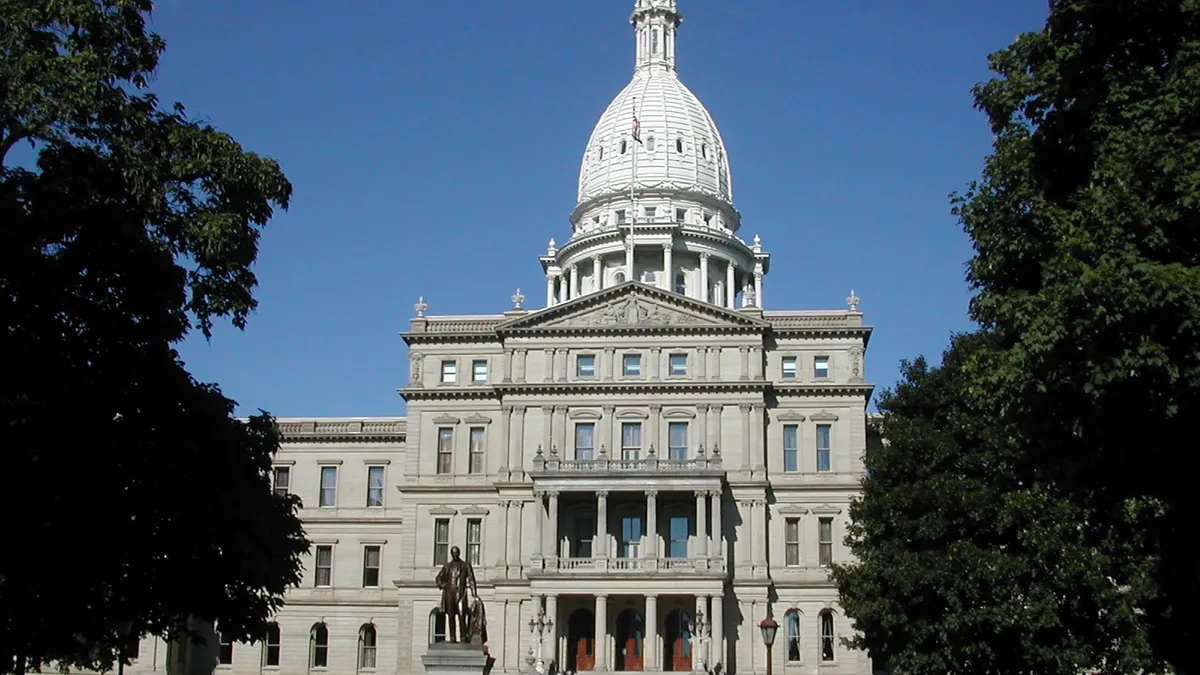Dive Brief:
- The Michigan House Energy Policy Committee last week passed two amendments to energy legislation, including a 30% renewables goal by 2025 and a compromise which would keep the state's energy choice law at 10%, Mlive.com reports.
- House Rep. Julie Plawecki (D) introduced the proposed new renewables goal and stressed that it is not a mandate. The state is currently on pace to meet a 10% renewables mandate by the end of this year.
- A second amendment would increase incentives for efficiency and maintain a 10% cap on the state's electric choice program.
Dive Insight:
Democratic lawmakers in Michigan have added two amendments to broad energy legislation that's being considered, including a non-mandate 30% renewables goal in the next decade, continuation of the state's 10% choice cap, and increasing incentives for utility efficiency investments.
While the renewables goal is a step forward, environmentalists are cautious. "We've got some questions about the language of 'goal,' period," Jack Schmitt, deputy director of the Michigan League of Conservation Voters, told Mlive.com. The amendment's sponsor, House Rep. Julie Plawecki (D), stressed it is not a mandate.
That has gone over well with DTE Energy. Irene Dimitry, the utility's vice president of business planning and development, told Mlive that they support the goal and believe it can be achieved. "We've been building renewable energy and supporting energy efficiency programs for quite a while now and we believe that both will be an important part of our portfolio to serve our customers going forward," Dimitry said.
The renewables amendment was supported out of committee on a vote of 21-3-1. The second amendment, addressing Michigan's electricity choice law, received weaker support but was moved out of committee by a vote of 18-7.
Michigan's choice law has caused problems for the state. The law allows up to 10% of a utility's customers to take service from third party suppliers. But some worry the limit makes planning difficult. Utilities want the choice program eliminated, saying if choice customers suddenly returned, they could not guarantee service to them. That led Gov. Rick Snyder (R) to propose maintaining the cap, but requiring alternative suppliers guarantee they can provide service for five years.
House Rep. Aric Nesbitt (R), who chairs the energy policy committee, put forth the latest compromise. The amendment would maintain the 10% choice limit, and put in a three-year review and an annual assessment for third party suppliers.
"I feel I've provided a good compromise between those that want to further go to retail open access and those that want it eliminated," Nesbitt said.















